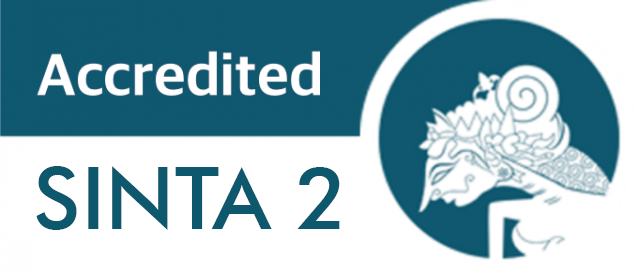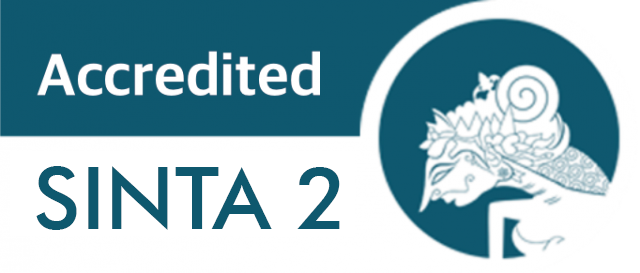The Importance of Family Support in Successful Treatment Adherence of Schizophrenic Patient
Downloads
Background: Schizophrenia is a treatable disease but requires patient's high adherence to treatment. Family support of a schizophrenic patient plays an important role in encouraging the patient to continue his treatment. This report aims to enhance the importance of family support of schizophrenic patient in patient's adherence to achieve a good mental health for all family member.
Case: A hospitalized male paranoid schizophrenic patient who was admitted and observed in Dr. Soetomo General Hospital from September 15th-25th, 2020. Patient came to the hospital with chief complaint could not stop talking (rambling) since 1 day before admission. Patient could neither eat nor sleep for that day. Patient relapsed after stopping taking medication from the psychiatrist.
Discussions: The patient in this case suffered a relapse of his paranoid schizophrenia because he stopped taking medication. Lack of support from family is the most important factor in a schizophrenia patient. Psychoeducation to patient's family about schizophrenia and the importance of medication would be a great help for patient's adherence to treatment.
Conclusions: Schizophrenia needs a long-life treatment. High adherence to treatment could improve schizophrenia's symptoms and prevent relapse. Family support is important to make sure the patient keeps taking his medicine regularly.
L. B. Cui et al., "Disease definition for schizophrenia by functional connectivity using radiomics strategy,” Schizophr. Bull., vol. 44, no. 5, pp. 1053–1059, 2018, doi: 10.1093/schbul/sby007.
S. A. Kusuma and Y. Setiawati, "LITERATURE REVIEW : COGNITIVE DYSFUNCTION IN SCHIZOPHRENIA,” vol. 9.
W. Tiandini, "Schizophrenia Patient ' S Need Assessment,” vol. 9.
P. StÄ™pnicki, M. Kondej, and A. A. Kaczor, "Current concepts and treatments of schizophrenia,” Molecules, vol. 23, no. 8, 2018, doi: 10.3390/molecules23082087.
M. J. Owen, A. Sawa, and P. B. Mortensen, "Schizophrenia,” Lancet, vol. 388, no. 10039, pp. 86–97, 2016, doi: 10.1016/S0140-6736(15)01121-6.
D. Keating et al., "Pharmacological guidelines for schizophrenia: A systematic review and comparison of recommendations for the first episode,” BMJ Open, vol. 7, no. 1, pp. 1–10, 2017, doi: 10.1136/bmjopen-2016-013881.
W. F. Maramis and A. A. Maramis, Catatan Ilmu Kedokteran Jiwa, Second edi. Surabaya: Airlangga University Press, 2009.
L. Chen et al., "The burden, support and needs of primary family caregivers of people experiencing schizophrenia in Beijing communities: A qualitative study 11 Medical and Health Sciences 1117 Public Health and Health Services,” BMC Psychiatry, vol. 19, no. 1, pp. 1–10, 2019.
E. Dziwota, M. Z. Stepulak, A. WÅ‚oszczak-Szubzda, and M. Olajossy, "Social functioning and the quality of life of patients diagnosed with schizophrenia,” Ann. Agric. Environ. Med., vol. 25, no. 1, pp. 50–55, 2018, doi: 10.5604/12321966.1233566.
Chen et al., "Risk Model Assessment in Early-Onset and Adult-Onset Schizophrenia Using Neurological Soft Signs,” J. Clin. Med., vol. 8, no. 9, p. 1443, 2019, doi: 10.3390/jcm8091443.
R. Emsley, I. Nuamah, S. Gopal, D. Hough, and W. Wolfgang Fleischhacker, "Relapse after antipsychotic discontinuation in schizophrenia as a withdrawal phenomenon vs illness recurrence: A post hoc analysis of a randomized placebo-controlled study,” J. Clin. Psychiatry, vol. 79, no. 4, 2018, doi: 10.4088/JCP.17m11874.
M. Krzystanek, K. Krysta, and K. SkaÅ‚acka, "Treatment Compliance in the Long-Term Paranoid Schizophrenia Telemedicine Study,” J. Technol. Behav. Sci., vol. 2, no. 2, pp. 84–87, 2017, doi: 10.1007/s41347-017-0016-4.
D. C. Rahayuningrum and H. Patricia, "Family Compliance in Controlling The Client's Medication with Schizophrenia,” in THE 1ST SYEDZA SAINTIKA INTERNATIONAL CONFERENCE ON NURSING, MIDWIFERY, MEDICAL LABORATORY TECHNOLOGY, PUBLIC HEALTH, AND HEALTH INFORMATION MANAGEMENT(SeSICNiMPH) THE RELATIONSHIP BETWEEN KNOWLEDGE AND FAMILY SUPPORT WITH FAMILY COMPLIANCE IN CONTROLLING, 2009, pp. 80–85.
A. Zygmunt, M. Olfson, C. A. Boyer, and D. Mechanic, "Interventions to improve medication adherence in schizophrenia,” Am. J. Psychiatry, vol. 159, no. 10, pp. 1653–1664, 2002, doi: 10.1176/appi.ajp.159.10.1653.
K. Higashi, G. Medic, K. J. Littlewood, T. Diez, O. Granström, and M. de Hert, "Medication adherence in schizophrenia: Factors influencing adherence and consequences of nonadherence, a systematic literature review,” Ther. Adv. Psychopharmacol., vol. 3, no. 4, pp. 200–218, 2013, doi: 10.1177/2045125312474019.
K. Gurak and A. Weisman de Mamani, "Risk and Protective Factors, Perceptions of Family Environment, Ethnicity, and Schizophrenia Symptoms,” J Nerv Ment Dis., vol. 204, no. 8, pp. 570–577, 2016, doi: 10.1097/NMD.0000000000000558.
D. I. Velligan et al., "The use of individually tailored environmental supports to improve medication adherence and outcomes in schizophrenia,” Schizophr. Bull., vol. 34, no. 3, pp. 483–493, 2008, doi: 10.1093/schbul/sbm111.
Á. Carbonell, J. J. Navarro-Pérez, and M. V. Mestre, "Risk factors associated with the family care of people with serious mental illness,” Med. Oral Patol. Oral y Cir. Bucal, vol. 24, no. 4, pp. e438–e443, 2019, doi: 10.4317/medoral.23133.
A. N. Cohen et al., "Preferences for Family Involvement Among Veterans in Treatment for Schizophrenia,” Psychiatr Rehabil J., vol. 42, no. 3, pp. 210–219, 2019, doi: 10.1037/prj0000352.
P. J. Weiden, "Understanding and addressing adherence issues in schizophrenia: From theory to practice,” J. Clin. Psychiatry, vol. 68, no. SUPPL. 14, pp. 14–19, 2007.
Copyright (c) 2021 Lia Jessica, Izzatul Fithriyah, I Gusti Ayu Indah Ardani

This work is licensed under a Creative Commons Attribution-ShareAlike 4.0 International License.
1. Copyright of this journal is possession of the Author, by the knowledge of the Editorial Board and Journal Manager, while the moral right of the publication belongs to the author.
2. The journal allows the author(s) to retain publishing rights without restrictions.
3. The articles are published under a Creative Commons Attribution Share-Alike (CC BY-SA) license. Many research funding bodies prefer the CC BY-SA license because it allows for maximum dissemination and re-use of open access materials. Users are free to share (copy, distribute, and transmit) and remix (adapt) the contribution under this license, including for commercial purposes, as long as they attribute the contribution in the manner specified by the author or licensor.




























